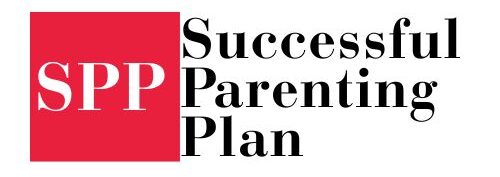Join on WhatsApp
Get the latest updates directly on WhatsApp – motivation, news & more!
If you checked your bank account this October and saw two SSI payments—one on the 1st and another on Halloween—you’re not imagining things. But before you start celebrating a financial windfall, here’s the reality: the October 31st deposit is not extra money. It’s simply November’s SSI payment arriving a day early because November 1 falls on a Saturday.
This timing quirk happens several times a year, and it always sparks confusion. Let’s unpack why it happens, who it affects, and—most importantly—how to budget so you don’t end up short in November.
Why Two SSI Checks Land in October 2025
The Social Security Administration (SSA) issues Supplemental Security Income (SSI) on the first day of every month. But if that day is a weekend or federal holiday, payments get pushed forward to the last business day of the prior month.
That’s exactly what’s happening this fall:
- October 1, 2025 → Normal October SSI check.
- October 31, 2025 → November SSI check, sent early because Nov. 1 is a Saturday.
Translation: You’re not getting “bonus money”—you’re just receiving November’s deposit a day early. There will be no SSI payment in November since it already landed on Halloween.
Who This Applies To
This payment timing shift only affects SSI recipients. It does not apply to:
- Social Security retirement benefits
- Social Security Disability Insurance (SSDI)
- Survivor benefits
Those benefits are scheduled differently—usually on Wednesdays, based on your birthday—and won’t experience this “two-check” scenario unless holidays get in the way.
SSI, on the other hand, is a needs-based program for people who are:
- Age 65 or older, or
- Blind or disabled, and
- Have limited income and financial resources.
For 2024, the federal benefit rate is $943 per month for individuals and $1,415 for couples, with some states adding extra. That rate typically adjusts each January for cost-of-living (COLA).
2025 SSI Payment Schedule
To keep things clear, here’s the official month-by-month SSI calendar for 2025 (source: SSA 2025 Payment Schedule).
| Month | Payment Date | Notes |
|---|---|---|
| January 2025 | Dec. 31, 2024 | Paid early (Jan. 1 is holiday) |
| February 2025 | Feb. 1, 2025 | Normal date |
| March 2025 | Feb. 28, 2025 | Early (March 1 is Saturday) |
| April 2025 | Apr. 1, 2025 | Normal date |
| May 2025 | May 1, 2025 | Normal date |
| June 2025 | May 30, 2025 | Early (June 1 is Sunday) |
| July 2025 | Jul. 1, 2025 | Normal date |
| August 2025 | Aug. 1, 2025 | Normal date |
| September 2025 | Aug. 29, 2025 | Early (Sept. 1 is Labor Day) |
| October 2025 | Oct. 1, 2025 | Normal date |
| November 2025 | Oct. 31, 2025 | Early (Nov. 1 is Saturday) |
| December 2025 | Dec. 1, 2025 | Normal date |
Notice the pattern: whenever the first of the month falls on a weekend or holiday, the deposit comes one business day early.
Direct Deposit vs. Paper Checks
Today, most SSI recipients use direct deposit or the Direct Express debit card, which ensures funds hit accounts promptly. Paper checks, however, can be delayed by postal slowdowns, weather disruptions, or holiday weekends.
The SSA strongly encourages electronic payments to avoid late-arrival headaches.
Why SSA Pays Early (Instead of Waiting)
You might wonder: why not just pay on Monday, Nov. 3, instead of Oct. 31? The answer is simple—many SSI recipients rely on these checks as their primary income source. Waiting even a couple extra days could leave households unable to pay rent or buy groceries. By paying early, SSA ensures beneficiaries aren’t left stranded.
Budgeting Tips for the Two-Check Month
Here’s where things can go sideways. If you treat that Oct. 31 payment as “bonus cash,” you could run out of money halfway through November. To stay safe:
- Label It Mentally → Think of the Halloween deposit as “November’s rent money.”
- Separate Accounts → Transfer the second payment into savings until November.
- Track Bills → Utilities and medical bills don’t follow SSA’s quirks.
- Watch Auto-Payments → Make sure your bank doesn’t overdraft in November.
Financial planners often advise setting aside the early check immediately, so you’re not tempted to spend it in October.
Tax and Program Impact
- Good news: SSI is not taxable. Receiving two checks in October won’t affect your IRS filings.
- But caution: For programs like Medicaid or SNAP, a temporarily higher bank balance could raise questions. Keep SSA documentation handy to show that one check was November’s benefit paid early.
Real-Life Example
Take Maria, a single mom in Oklahoma, receiving $943/month in SSI.
- Oct. 1 → She gets $943 for October.
- Oct. 31 → Another $943, which is actually November’s money.
If she spends both in October thinking she has nearly $2,000 to work with, she’ll hit a wall in mid-November. But if she sets aside the second deposit, she’ll coast smoothly into December’s payment on Dec. 1
Fact Check
Rumors often swirl online that two SSI checks in a month are “bonus” or “extra” payments. That’s false. According to the Social Security Administration’s official calendar, these are early disbursements only. No one is getting additional SSI beyond their monthly entitlement.
FAQs
Why did I get two SSI checks in October 2025?
Because November’s payment was sent early on October 31, as Nov. 1 falls on a Saturday.
Does this happen with Social Security retirement benefits too?
No. It only affects SSI, not retirement, disability, or survivor benefits.
Will two SSI payments affect my taxes?
No. SSI is not taxable and doesn’t need to be reported on your federal tax return.
How can I avoid overspending when I get two checks?
Set aside the second check and treat it as next month’s income. Some people use separate accounts for this.

